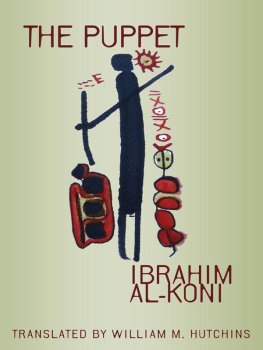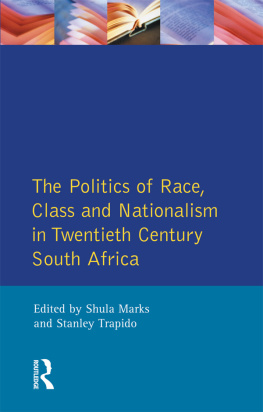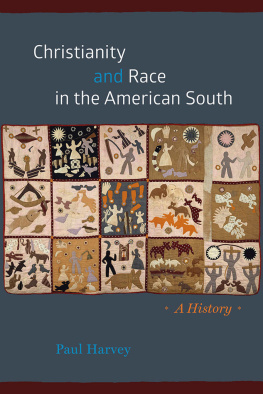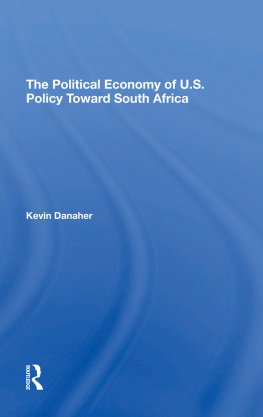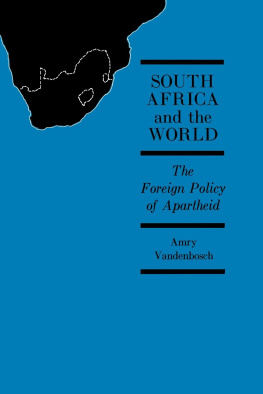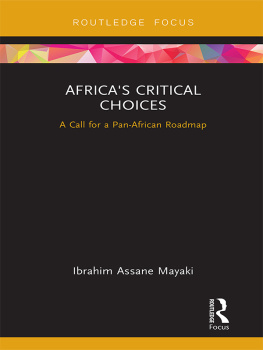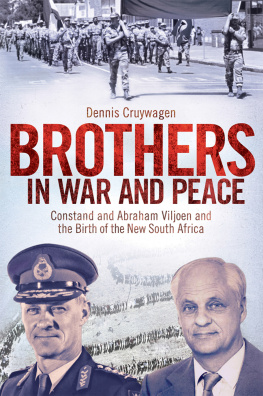Ibrahim Abraham - Race, Class and Christianity in South Africa
Here you can read online Ibrahim Abraham - Race, Class and Christianity in South Africa full text of the book (entire story) in english for free. Download pdf and epub, get meaning, cover and reviews about this ebook. year: 2021, publisher: Routledge, genre: Politics. Description of the work, (preface) as well as reviews are available. Best literature library LitArk.com created for fans of good reading and offers a wide selection of genres:
Romance novel
Science fiction
Adventure
Detective
Science
History
Home and family
Prose
Art
Politics
Computer
Non-fiction
Religion
Business
Children
Humor
Choose a favorite category and find really read worthwhile books. Enjoy immersion in the world of imagination, feel the emotions of the characters or learn something new for yourself, make an fascinating discovery.

- Book:Race, Class and Christianity in South Africa
- Author:
- Publisher:Routledge
- Genre:
- Year:2021
- Rating:5 / 5
- Favourites:Add to favourites
- Your mark:
- 100
- 1
- 2
- 3
- 4
- 5
Race, Class and Christianity in South Africa: summary, description and annotation
We offer to read an annotation, description, summary or preface (depends on what the author of the book "Race, Class and Christianity in South Africa" wrote himself). If you haven't found the necessary information about the book — write in the comments, we will try to find it.
Race, Class and Christianity in South Africa — read online for free the complete book (whole text) full work
Below is the text of the book, divided by pages. System saving the place of the last page read, allows you to conveniently read the book "Race, Class and Christianity in South Africa" online for free, without having to search again every time where you left off. Put a bookmark, and you can go to the page where you finished reading at any time.
Font size:
Interval:
Bookmark:

- A note on currency
- A note on racial terminology
- 1Christianity and the middle class in South Africa
- 2Middle-class morality and Christianity in South Africa
- 3Spiritual and class insecurity in South Africa
- 4Middle-class moral insecurity in South Africa
- 5Race, class, and habitus in South African churches
- 6Anomie and vocation in South African Christian ministry
- 7Musicking, unity, and sincerity in South African churches
- Conclusion: Covid-19 in Cape Town
- A note on currency
- A note on racial terminology
- 1 Christianity and the middle class in South Africa
- 2 Middle-class morality and Christianity in South Africa
- 3 Spiritual and class insecurity in South Africa
- 4 Middle-class moral insecurity in South Africa
- 5 Race, class, and habitus in South African churches
- 6 Anomie and vocation in South African Christian ministry
- 7 Musicking, unity, and sincerity in South African churches
- Conclusion: Covid-19 in Cape Town
- vii
- viii
- ix
- USD/ZAR 14.0
- EUR/ZAR 15.0
- GBP/ZAR 17.0
- AUD/ZAR 10.0
Font size:
Interval:
Bookmark:
Similar books «Race, Class and Christianity in South Africa»
Look at similar books to Race, Class and Christianity in South Africa. We have selected literature similar in name and meaning in the hope of providing readers with more options to find new, interesting, not yet read works.
Discussion, reviews of the book Race, Class and Christianity in South Africa and just readers' own opinions. Leave your comments, write what you think about the work, its meaning or the main characters. Specify what exactly you liked and what you didn't like, and why you think so.

